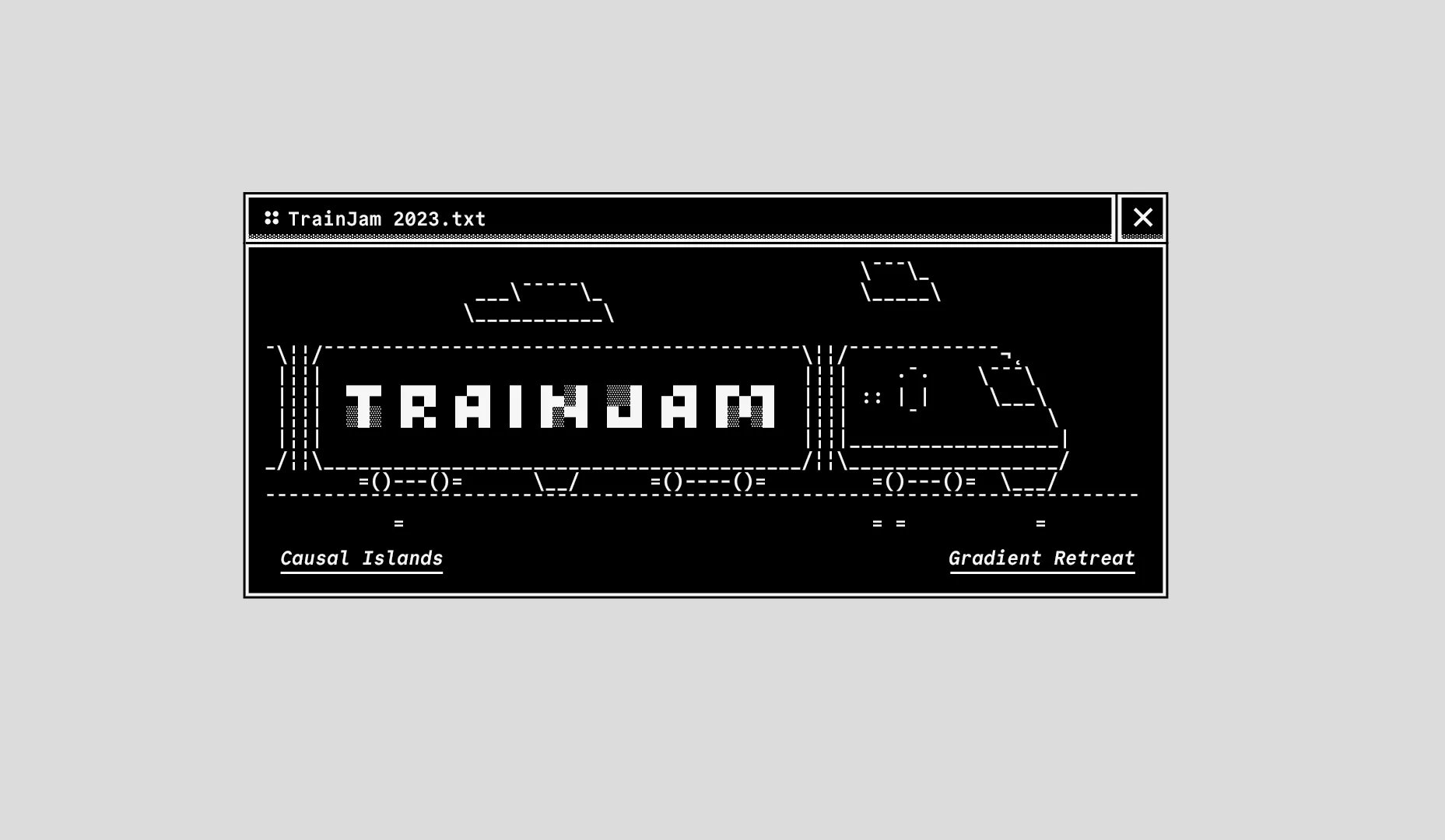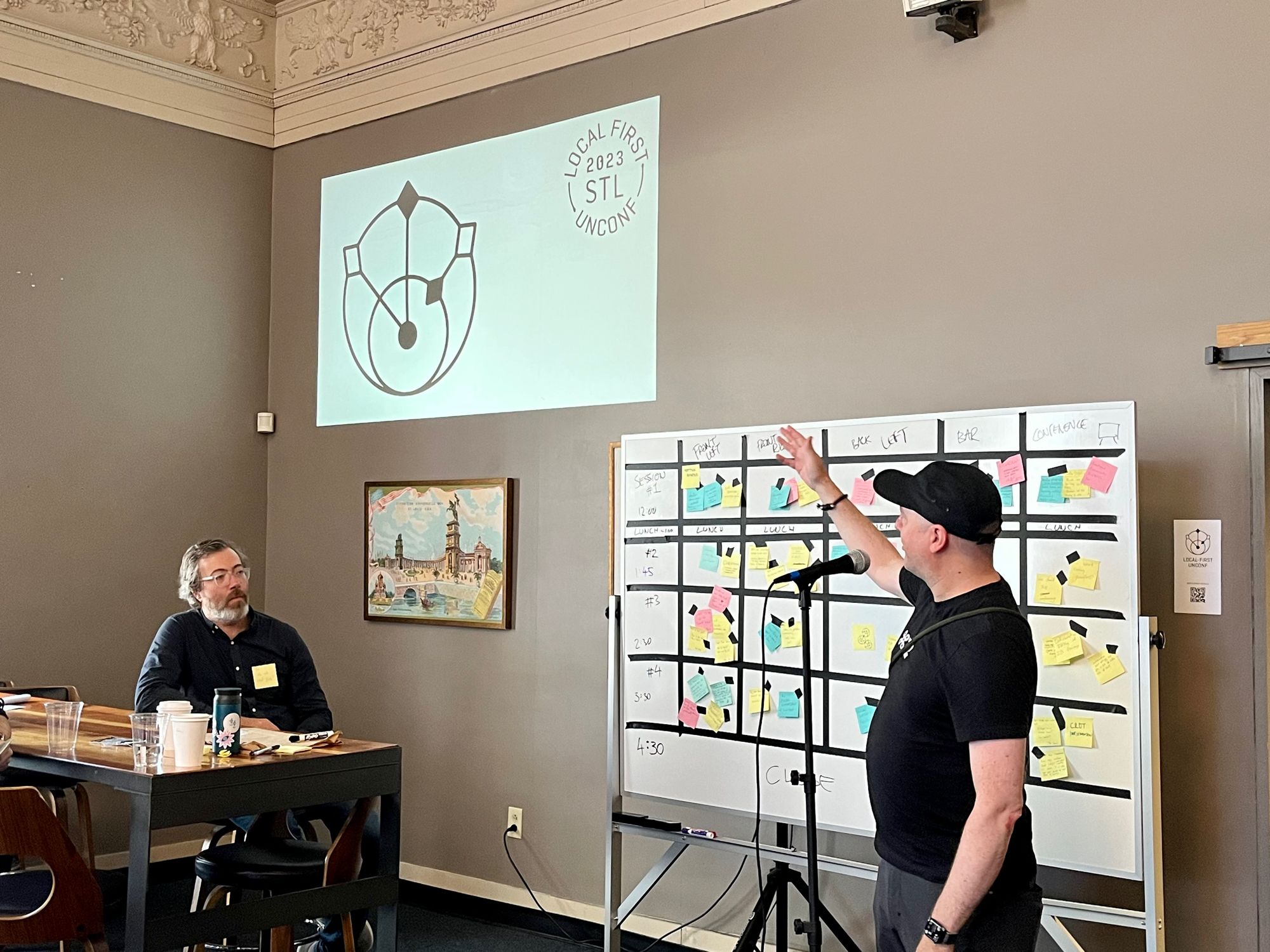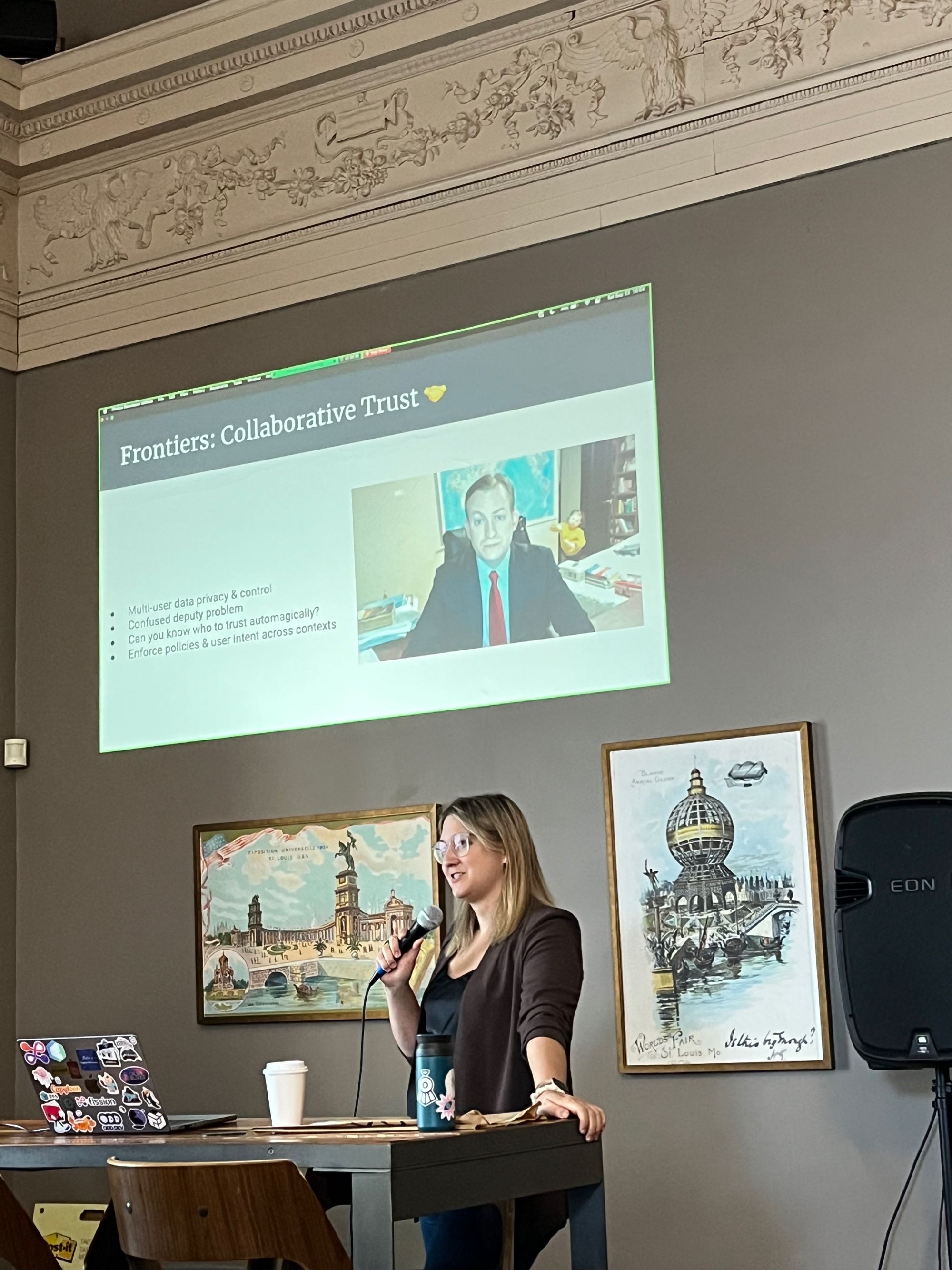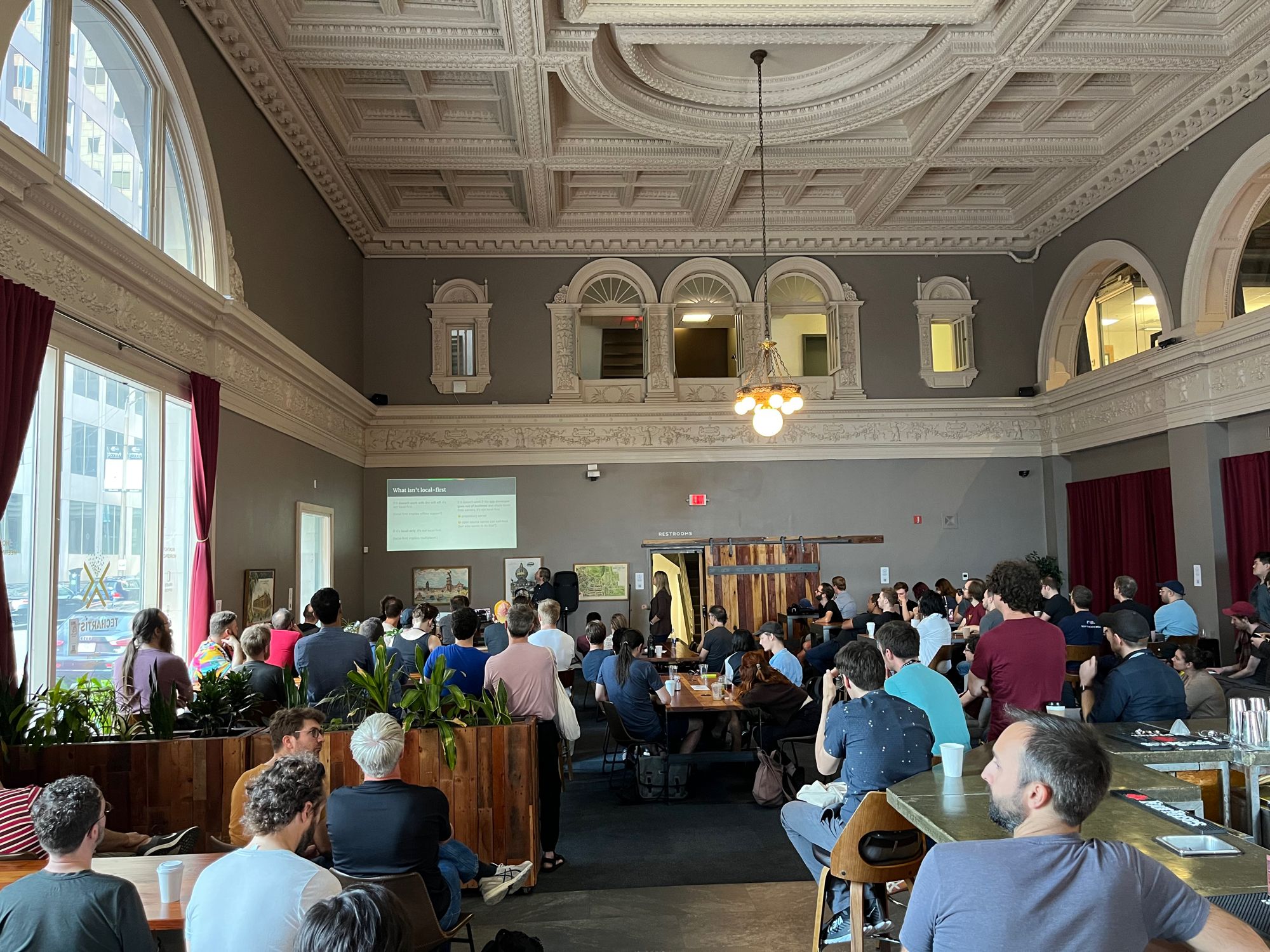The second half of September was jam-packed with exciting events for local-first, programming language theory, and distributed systems aficionados. First, Causal Islands partnered with Gradient Retreat to host TrainJam, a rail adventure to St. Louis, to attend the last 😭 Strange Loop conference. Then, at Strange Loop, Brooklyn gave a talk on IPVM and Fission's edge computing stack, and we attended the PWLConf co-located with Strange Loop (and co-organized by Fission Staff Researcher Zeeshan). Finally, we capped it all off with the LoFi Unconference. Organized by ourselves, DXOS, and Ink & Switch, this sold-out event explored how we can bring local-first software into the hands of more users.
TrainJam
Departing from Seattle, fourteen engineers set out for St. Louis via the Empire Builder Line, sharing ideas, code, and coffee along the way. Here's a dispatch from Fission Protocol Engineer Brian, who rode the rails:
The TrainJam experience was a bit like being at a conference but with just the hallway track. We didn’t have structured sessions and instead spent time in ad hoc discussions about local first, offline, and many other topics.
One train jammer brought a 5G hotspot and distributed little mesh nodes to a few roomettes. In places where cell service was available, we had reasonably good Internet!

The highlights for me were getting to know people and their stories. What have they worked on in tech? What do they work on now? One unexpected bonus was that sometimes you would take a meal with random other train riders. I heard great stories from folks riding the rails for travel and pleasure.
Also, I made a lot of coffee for folks. Amtrak coffee is pretty terrible, and I brought two pounds of coffee in preparation. My little barista setup ended up being quite popular. 😄
Strange Loop
Kicking off Strange Loop was the PWLConf track, co-organized and run by Staff Research Engineer Zeeshan Lakhani.
Fission's co-founder and CTO, Brooklyn Zelenka, presented on IPVM. Below is the abstract for her talk and the recording:
The advent of TCP/IP and the web produced an explosion of innovation by radically lowering the barrier to entry to networking. Thanks to recent technical and social innovation, we now have the building blocks for the next generation of open services: location-free verifiable data and computation. This talk presents UCAN Invocation and the Interplanetary VM (IPVM). IPVM code runs anywhere (even offline), respects data privacy, and services interoperate seamlessly without pre-negotiation. Verifiable computation opens the door to content-addressed invocations, results, and workflows. This greatly lowers the complexity over traditional architectures (e.g. LAMP). Not only is this easier to reason about, but it also (paradoxically) has better than linear scaling: the more it's used, the faster it is! As anyone can participate, it doesn't depend on the handful of data centres provided by large orgs: anyone can provide capacity (including in underserved regions like Africa and South America).
Fission Staff Research Engineer Zeeshan Lakhani had a unique role during Strange Loop as co-organizer of the PWLConf; an official speaker track this year. Here are his thoughts about PWLConf and StrangeLoop:
In all its grandeur, Strange Loop has been a special conference for me over the years. I’ve been attending since 2012 almost regularly; we started running PWLConf in 2016.
For me, Strange Loop is a time to see old friends, commiserate about the state of our world and technology, and try to find a few bits and pieces of inspiration for the future. Our track and the conference as a whole were amazing, and Alex Miller really put on one hell of a run. I can’t weigh in on any PWL talks (I’m an organizer, after all). But, I will give a big shout-out to Valeria de Paiva’s War Time Proofs and Futuristic Programs, which beautifully wove lots of context, history, and theory.
Additionally, we had a lot of people wondering about Papers We Love’s plans for 2024. All I can say right now is, please fill out our survey; more is to come!
From Brian:
At the conference, I volunteered with Zeeshan and the Papers We Love crew on the PWLConf track.
The opening talk by Andrew Black Why Programming Languages Matter had great reflections on the languages he has worked on over the years, and he discussed some interesting aspects of usability and the design of new languages. His talk and the three after were absolutely packed. We had to track down additional chairs to seat the audience despite it being the largest room at the conference!
Mae Milano’s Programming Distributed Systems talk that followed immediately afterward was also excellent and felt like an overview of many of the topics we have covered in our Distributed Systems reading group.
I stepped out of volunteer duty to watch Evan Czaplicki’s The Economics of Programming Languages. Evan invented the Elm programming language, which inspired me while I was learning to program. Evan has struggled over the years to find the best way to support work on Elm. Patronage worked well for many years, but corporate (mis)incentives have not always worked out. He compared Elm with other programming languages and how they are funded. It’s not great; corporate and patronage models seem the most successful, and mostly community and open source approaches have only succeeded in a few cases. (Python is one example.)
Lo-Fi Unconference
Nearly 100 attendees came to the TechArtista Downtown for a day filled with small-group discussions, demos, and lightning talks. The event brought together folks building frameworks or tools, developing local-first apps, or researching the area. Some attendees were new to local-first software development and wanted to learn more. Here are some insights about that day from Brian:
What a great gathering of interesting folks and projects! I presented a version of our ODD SDK workshop that focused on local-only data with the option to make a Fission account to sync and persist data. We teamed up with DXOS to demonstrate frameworks that focus on local-first apps.
One takeaway was that lots of folks are interested in local first! The event was sold out, with folks waiting to enter. A few folks listed themselves and their projects in a GitHub repo. In addition, a community has formed around LoFi with an active Discord server.



All in all, our visit to St. Louis was invigorating. We connected with many talented builders with novel ideas that will undoubtedly push the field forward. Even though the curtain has fallen on Strange Loop, the community that has grown out of it is strong and will continue to thrive.
Thank you to everyone who joined us at our various events! Until we meet again, do stay in touch via our Discord.
